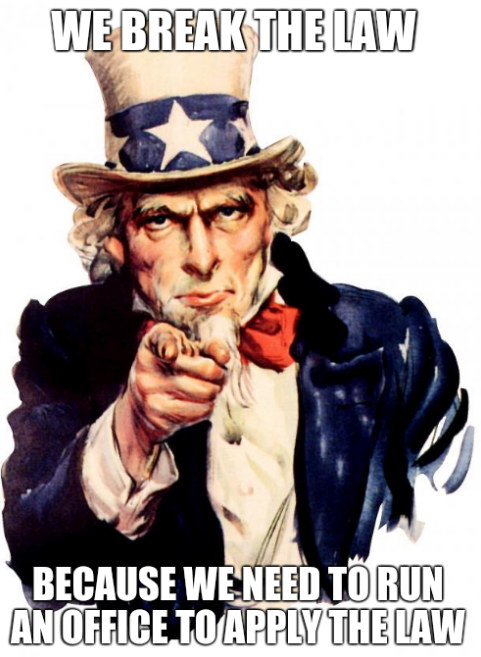

And they hope to also enforce the law (with the UPC)
UTTER LAWLESSNESS has long been a problem in EPOnia. Stakeholders cannot sue anyone but other stakeholders, staff cannot sue the management (no matter the circumstances or severity of grievances), and ILO-AT seems to be 'in bed' with EPO management. The EPO's judges are openly complaining that they lack the independence they require (as per the law) and examiners say they cannot do their job properly anymore.
epo.org link), soon to be boosted by Watchtroll (stenography from litigation fanatics and patent trolls).
"Only patently dishonest people would claim that there's no problem at the EPO."The quality of patents granted by the European Patent Office (EPO) under
Campinos and Battistelli is rapidly decreasing, as will the value of these documents. All those software patents would likely perish in practice (e.g. in European courts, if challenged).
As someone noted earlier today in IP Kat comments:
Alice, Mayo and Myriad attempted for policy reasons to limit what was patentable in the computer-related and biotech field. Part of the reasoning was to make sure the 'building blocks of innovation' were not monopolised, i.e. stayed part of the commons. The IP community reacted by simply seeing the increased uncertainty, as you say, but there are much broader ramifications. Unfortunately economists have not jumped in and given us the numbers for how much the economy would benefit or lose. They only do the easy analyses, and don't tackle the really complex things. And if economists don't do this, then government has no way of seeing the real impact of what the Supreme Court was doing. So government sees no point in trying to protect the commons, because in trying to do so it will only see the criticism of the IP and R&D community, without any means to look at the gain.
"...this is a repetition of the same mistakes which led to the granting of loads of fake patents -- patents that simply would not withstand challenge outside the EPO."Surely Max Walters (longtime writer for the patent microcosm) knows that quicker oppositions would mean sloppier ones, i.e. ones that are likely to leave fake patents in tact. But today he echoes a similar 'report' from WIPR 'sphere' (more patent maximalists in the EPO's pockets) by saying that lawyers "welcome opposition speed but want clearer BoA data". To quote: "In-house lawyers in the pharmaceutical industry say data showing that EPO opposition procedures are speeding up provides clarity but that more information should be published on how successful subsequent appeals are."
Speed is the wrong thing to measure. As we noted earlier this week, this is a repetition of the same mistakes which led to the granting of loads of fake patents -- patents that simply would not withstand challenge outside the EPO. The EPO now hopes to 'steal' all the courts -- a subject we'll tackle in the next post. ⬆